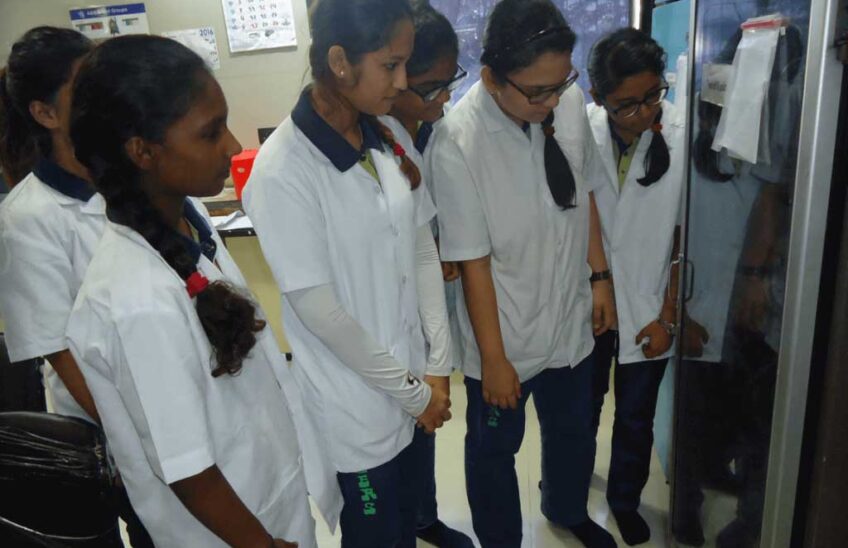
In India, a national educational organization known as the Central organization of Secondary Education (CBSE) is in charge of a sizable network of schools and administers exams for grades 10 and 12. The CBSE was founded in 1962 and is well-known for its extensive and uniform curriculum, which attempts to give children all around the nation a well-rounded education. The board is in charge of establishing the curriculum, textbooks, and evaluation standards for schools that are affiliated with it, guaranteeing a consistent and superior educational experience. Exams administered by the CBSE, in particular the board exams for Classes 10 and 12, are well-known and an important step towards further education for pupils.
In order to support overall growth, CBSE emphasizes a student-centric approach that places a strong emphasis on ongoing and thorough evaluation. In order to improve learning results, the board supports the adoption of cutting-edge teaching strategies and technological tools. Co-curricular activities are highly valued by CBSE in addition to academic achievement, promoting a well-rounded education that extends beyond textbooks. The Central Board of Secondary Education (CBSE) has a significant influence on the Indian educational system and helps students get ready for college and the workforce.
What is CBSE board
One well-known educational board in India in charge of overseeing and controlling the school system is the Central Board of Secondary Education (CBSE). With hundreds of affiliated schools both domestically and overseas, the 1962-founded CBSE is a large, nationally recognized educational organization that is run by the Union Government of India. The board is committed to provide pupils a standardized, excellent education. It does this by establishing academic standards, creating curricula, and administering tests for grades 10 and 12.
The CBSE is widely recognized for its innovative and student-centered teaching methodology, which prioritizes a well-rounded curriculum encompassing both academic and extracurricular pursuits. The board is dedicated to supporting kids’ entire development by encouraging creativity, critical thinking, and life skills. Exams administered by the CBSE, especially the board exams for Classes 10 and 12, are seen as important milestones in a student’s academic career and are given a lot of weight when applying to colleges. As a whole, CBSE has a significant influence on how education is shaped in India, guaranteeing a rigorous and uniform curriculum that equips pupils for both future difficulties and postsecondary education.
Role of CBSE
The Central Board of Secondary Education (CBSE) is a key player in the Indian education system since it offers schools all around the nation a high-quality, standardized curriculum. Constructed by the Indian government in 1962, the Central Board of Secondary Education (CBSE) was given the responsibility of creating and revising the curriculum, creating textbooks, and administering exams for grades 10 and 12. In order to improve the quality of education generally, the board is actively involved in educational research, teacher training programs, and the promotion of cutting-edge teaching techniques in addition to administering exams.
The impact of CBSE is extensive, affecting millions of educators and students. Regardless of a student’s location, the board guarantees a consistent and equal education by establishing common standards and norms. Exams administered by the CBSE, in particular the board exams for Classes 10 and 12, are seen as important turning points in a student’s academic career that affect future career paths and college admissions. The board’s dedication to a well-rounded education that includes academics and extracurricular activities highlights its larger role in developing well-rounded people with the knowledge and abilities necessary for success in postsecondary education and beyond.
Objectives of CBSE Board
The promotion of quality in education throughout India is one of the Central Board of Secondary Education’s (CBSE) main goals. One of the main goals is to offer a complete, standardized curriculum that encourages students’ critical thinking, intellectual growth, and practical abilities. In order to prepare students for competition on a worldwide scale, CBSE works to guarantee that the educational content is current, relevant, and in line with international standards. Additionally, the board works to advance a student-centered approach that emphasizes holistic development through the inclusion of extracurricular activities and life skills in the curriculum.
Fair and transparent testing for grades 10 and 12 is one of CBSE’s other main goals. Through the provision of a trustworthy evaluation system that accurately reflects students’ knowledge and abilities, the board seeks to evaluate students’ comprehension of the curriculum. By upholding a strict testing procedure, CBSE supports the legitimacy of the Indian educational system and helps students move easily into postsecondary education and a range of job pathways. Creating a dynamic and inclusive education system that enables students to thrive academically and gives them the tools they need for success in their future undertakings is the main goal of CBSE.
Advantages of CBSE Board
The Central Board of Secondary Education (CBSE) is widely appreciated in India for various reasons. One of its principal advantages lies in the regularity and uniformity it brings to the educational system. This is not only evident in the curriculum and assessment procedures but is also reflected in the high standards maintained by CBSE-affiliated schools in faculty recruitment. To ensure a consistent level of education across the country, CBSE places great emphasis on its affiliated schools hiring qualified and competent faculty. This commitment to quality teaching staff adds another layer to the stability that CBSE provides, making it easier for parents and students, particularly those who relocate frequently, to seamlessly transition between schools associated with CBSE without significant disruptions to the academic journey.
The CBSE board’s emphasis on a well-rounded education is another benefit. In addition to emphasizing academic achievement, CBSE integrates sports, extracurricular activities, and life skills into the curriculum to promote holistic development. In addition to imparting standard academic knowledge, this method develops pupils’ critical thinking, communication, and creative skills. Furthermore, by placing more of an emphasis on thorough and ongoing evaluation than just high-stakes tests, CBSE promotes a more vibrant and inclusive learning environment that better prepares students for the demands of postsecondary education and beyond.
Frequently Asked Questions
Q1. How do these schools ensure the safety and security of their students?
A. CBSE schools on Dumas Road prioritize student safety by implementing stringent security measures. These include surveillance systems, controlled access points, identity verification, and staff training. Regular drills and collaboration with local authorities enhance emergency preparedness, ensuring a secure learning environment.
Q2. Why should parents consider CBSE schools in Surat for their children’s education?
A. Parents should consider CBSE schools in Surat for their children’s education due to the board’s standardized curriculum, emphasis on holistic development, and nationwide recognition. CBSE schools in Surat offer quality education that prepares students for academic excellence and future challenges.
Q3. How does a CBSE board school in Surat ensure quality education?
A. A CBSE board school in Surat ensures quality education by adhering to the standardized CBSE curriculum, promoting interactive and innovative teaching methods, employing qualified faculty, and regularly updating educational practices. This commitment ensures a comprehensive and high-quality learning experience for students.
Q4. How do the best schools in Surat CBSE ensure quality education?
A. The best schools in Surat CBSE ensure quality education through adherence to the standardized CBSE curriculum, experienced faculty, interactive teaching methods, modern infrastructure, and comprehensive assessments. These schools prioritize holistic development, creating an optimal learning environment for students.

